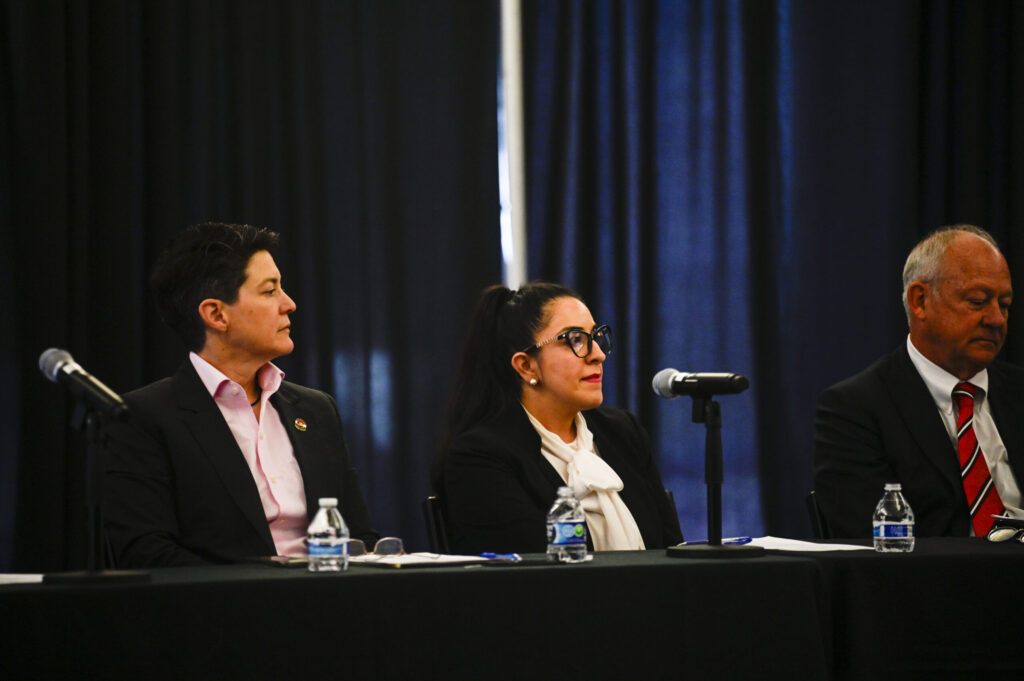Appeals court overturns restitution order due to Douglas County judge’s extreme delay
Colorado’s second-highest court on Thursday overturned a Douglas County judge’s order for $12,500 in crime victim restitution, which she issued nearly two years after the defendant’s sentencing and several months after the state Supreme Court told trial judges to pay attention to the 91-day deadline in the law.
Before the Court of Appeals, both the prosecution and defendant Jonathan Morris took the unusual step of agreeing he should not pay the restitution ordered by then-District Court Judge Patricia Herron because of her unexplained delay in issuing a decision.
In Colorado, when a convicted defendant is required to pay financial restitution, prosecutors typically must provide the requested amount by the time of sentencing or within 91 days of sentencing. Judges must also impose the restitution amount within 91 days of sentencing. If judges need to extend either deadline, they must find good cause exists.
In a major decision, People v. Weeks, the Supreme Court ruled in November 2021 that judges’ typical process of awarding compensation to crime victims did not comply with state law. The justices noted a lackadaisical approach had taken hold in the trial courts that neglected the clear deadlines and procedural requirements. Consequently, if trial judges fail to follow the law, they lose authority to issue a restitution order.
Herron sentenced Morris for a misdemeanor in July 2020, with the prosecution having provided its request for crime victim restitution. But 91 days later, Herron had not decided what amount Morris needed to pay.
In November 2020 — beyond the deadline — Herron issued an order indicating the parties “stipulated” to good cause for extending the window. She then held a hearing in February 2021 on the subject of restitution. Herron indicated she would issue an order “as fast as” she could, if not that same day.
However, Herron did not order restitution for nearly 17 months. Her decision in July 2022 came almost exactly two years after she sentenced Morris, and eight months after the Supreme Court told trial judges they could not order restitution if they failed to respect the deadlines in state law.
Morris appealed the restitution order and the government did not dispute the extreme delay between the hearing and the written order rendered the restitution award void. A three-judge panel for the Court of Appeals agreed with both sides.
“The supreme court was clear,” wrote Judge Grant T. Sullivan in the April 18 opinion. “Ninety-one days after Morris was sentenced — October 23, 2020 — the trial court had neither determined a specific restitution amount nor expressly found good cause to extend the deadline beyond ninety-one days. Consequently, the court did not have authority to order Morris to pay restitution nearly two years after he was sentenced.”
Herron retired from the bench in December. In little over two years, the Court of Appeals has ordered reversals in more than half a dozen defendants’ cases for errors attributable to Herron — including in a separate case decided the same day as Morris’.
The reasons for reversal included Herron failing to correct a prosecutor’s misstatement of the law to jurors; allowing a biased juror to serve; incorrectly permitting multiple defendants to go without representation; designating a defendant a “sexually violent predator” without explaining why; and letting jurors hear a misleading account of the DNA evidence found in a sex assault case.
The 18th Judicial District Attorney’s Office did not offer comment about the numerous reversals to its prosecutions.
The case is People v. Morris.











